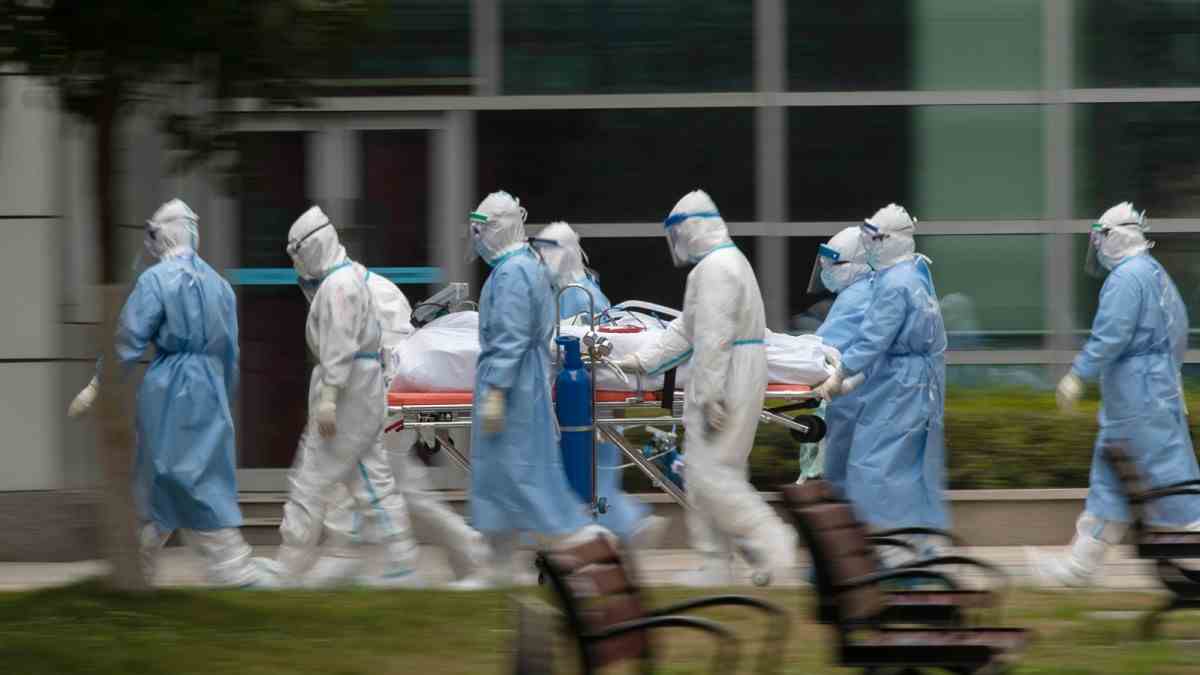The sound is already set in the opening credits. A voice warns: “Perfectionism is the enemy of the good when it comes to crisis management. Speed beats perfection. The virus will always be ahead of you if you don’t move.” But delays are threatening worldwide and the speaker knows why: “Everyone is afraid of making a mistake. But the biggest mistake is doing nothing.” In the fight against new pathogens, speed is of the essence – speed matters.
The voice belongs to Mike Ryan, Director of Emergency Response Coordination at the World Health Organization (WHO). Michael Wech’s film does not reveal when he warned the world to hesitate in the face of a viral threat. Instead, it has been reported several times that the WHO has refused interviews. The outbreak – the pandemic was preventablehas to do without a quote from a main defendant.
Witnesses are called upon to show that the corona pandemic might not have been avoided, but that early action could have mitigated the global consequences, with 521 million infections and 6.2 million fatalities so far. The film meticulously traces how the news of the “lung disease of unknown cause” reached researchers and governments worldwide at the end of December 2019 – and at first nothing happened and then too little.
The Chinese government warned authorities and doctors not to speak publicly about the disease. Doctors who did so were accused of “rumour-mongering”. As of January 5, 2020, four labs had sequenced the virus, which is essential for vaccine development, but Chinese authorities did not share the information. An Australian researcher finally published the genome on January 10th.
Small delays can have a big impact when they add up
The time delay seems minor after two and a half years of the pandemic, but the delays added up. After the first corona case occurred in Thailand on January 13, 2020, Chinese authorities denied that the virus was transmitted from person to person, although this was expected internally. The WHO initially took over. It was only later that the “limited possibility” of human-to-human transmission was acknowledged.
In the first half, the filmmakers succumb to the danger of appearing as belated know-it-alls. “We missed the opportunity to save millions of lives,” says one of the experts interviewed. “Because of China’s behavior and the impotence of the WHO.” For those who still don’t get it, dramatic music and dark plumes of smoke accompany the missed opportunity. You’re always smarter afterwards.
It is also thanks to Jeremy Farrar of the Wellcome Trust that the presentation is more balanced. By mid-January 2020, we already knew enough to be able to say: “This is it, our pandemic, our 1918”. But science could not have made itself understood, and politics could not be convinced. At the end of January 2020, everything went as usual during the World Economic Forum in Davos, “an absurd situation, a parallel universe in this Swiss village – and at the same time global catastrophe threatened,” says Farrar.
Sars, swine flu, bird flu and Ebola – they weren’t as dangerous as feared
In these moments it becomes clear how difficult it was to warn against Corona after Sars, swine flu, bird flu and Ebola had not proven to be as dangerous as feared worldwide. Wuhan was locked down, but all that was talked about was what the Chinese government was doing and not why.
China built a hospital with 1,000 beds in six days. But in mid-February 2020, the world had the feeling for a moment that it could have been the epidemic. During the Munich Security Conference, experts declared that masks do not protect, Boris Johnson urged his people to go about their normal lives, and Donald Trump exulted that there would soon be just one or two patients left.
Few politicians understood what exponential growth means. “We failed to convey the threat,” admits Farrar. Then came Bergamo. This and an essay that popularized the term “flattening the curve” brought about a turning point. It was not until March 11th that the WHO reassessed the situation and declared that Covid-19 can be described as a pandemic.
It’s like a hurricane: you have to evacuate the city when the sun is shining. The film accuses that the ten weeks from January 2020 to early March determined the course of the pandemic and, in retrospect, were ten weeks lost. But after every crisis, people have the choice to act – or to carry on as before. Experts agree that the next pandemic would get worse.
The Outbreak – Was the Pandemic Preventable?May 17, 8:15 p.m., on ZDF.

